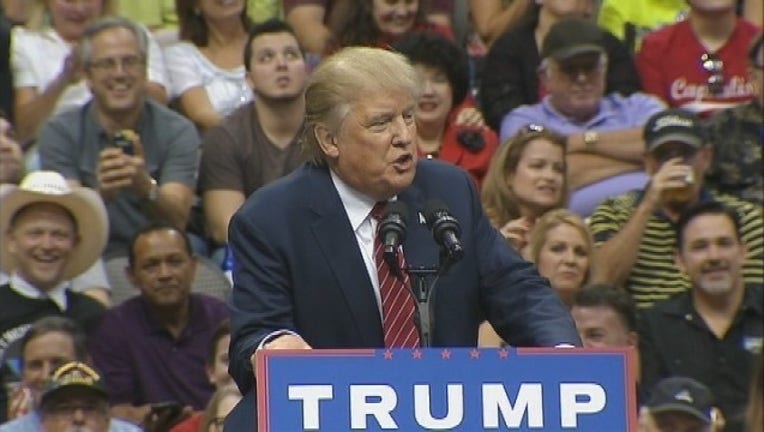Trump called out for appearing to mock disability

WASHINGTON (AP) — An advocacy group is offering Donald Trump sensitivity training after he appeared to mock a reporter with a disability in a South Carolina speech.
Jay Ruderman of the Ruderman Family Foundation in Boston said Thursday the Republican presidential contender should apologize to Serge Kovaleski of The New York Times and the public.
Kovaleski has a congenital condition that affects joint movement. In a speech Tuesday in South Carolina, Trump said: "poor guy, you oughta see this guy," and gestured in a jerky fashion as if imitating Kovaleski's movements.
Trump was challenging recollections by Kovaleski and many others about the 9/11 aftermath. Trump has made unsubstantiated claims that thousands of Muslims in New Jersey were seen celebrating the attacks.
In 2001, Kovaleski, then with The Washington Post, and another Post journalist wrote a week after the 9/11 attacks about authorities in New Jersey detaining and questioning "a number of people who were allegedly seen celebrating the attacks." The story did not suggest "thousands" were celebrating, as Trump claimed, and a story then by The Star-Ledger in Newark, New Jersey, said the reports of such celebrations by Muslims proved unfounded.
Even so, Trump has pointed to the Post story as backing up his claim and took issue with Kovaleski's recent statement that he did not remember anyone alleging that large numbers of Muslims were celebrating.
"Written by a nice reporter," Trump said in the speech. "Now the poor guy, you oughta see this guy — uh, I don't know what I said, uh, I don't remember. He's going like, I don't remember." His voice took a mocking tone, too.
The Times expressed outrage afterward that Trump would "ridicule the appearance of one of our reporters."
Ruderman said Trump would benefit from a "series of sensitivity training sessions" and offered to provide them.
"It is unacceptable for a child to mock another child's disability on the playground, never mind a presidential candidate mocking someone's disability as part of a national political discourse," he said.

